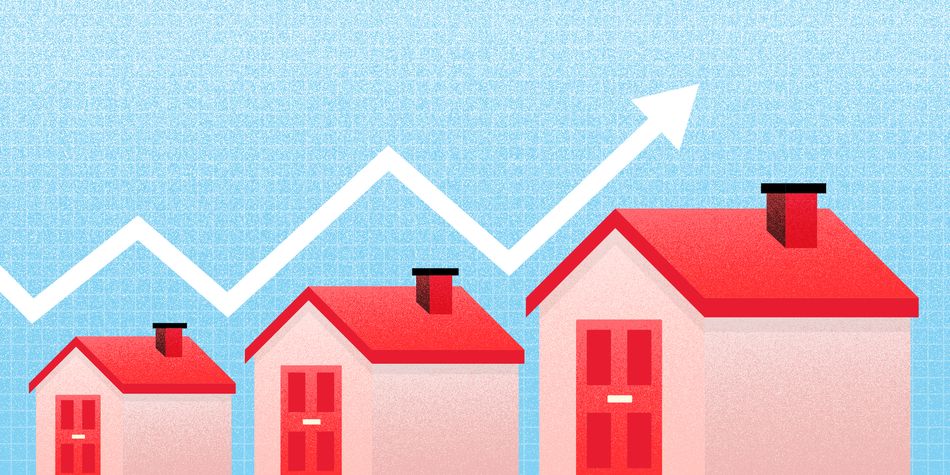First-time buyers are rushing to get on to the property ladder before changes to stamp duty come into force.
Stamp duty thresholds will change on 1 April, resulting in first-time buyers in more expensive areas paying thousands more in tax.
Here, we explain how the upcoming changes are already influencing the property market and get advice on securing a discount when buying a home.
Buyers race to beat the stamp duty deadline
Experts believe a recent uplift in property market activity is being led by first-time buyers trying to beat the stamp duty deadline.
Rightmove's data shows the number of sales agreed is currently up 11% year-on-year. The property portal has also reported its busiest ever start to the year for applications for mortgage agreements in principle.
Research by the estate agency Hamptons shows 26% of first-time buyers will need to pay stamp duty from April, compared with just 8% now.
Those buying in more expensive areas face the biggest rises, running to thousands of pounds. Hamptons says first-time buyers accounted for 21% of homes sold for more than £425,000 in November and December, up from the long-term average of 18%.
Stamp duty changes from 1 April
Stamp duty is a tax payable when purchasing property or land in England or Northern Ireland.
Since September 2022, a temporary relief has been in place for first-time buyers and home movers. However, this is due to end on 31 March.
Currently, first-time buyers purchasing a property worth up to £625,000 only need to pay stamp duty on the amount above £425,000.
On 1 April, these thresholds will be reduced. The £625,000 exemption will drop to £500,000 and the point at which stamp duty applies will fall from £425,000 to £300,000.
For existing homeowners, the tax-free threshold will also decrease. Currently, stamp duty is only paid on amounts above £250,000, but from April this will drop to £125,000.
expert view
How will the changes impact the property market?
We asked two experts what they expect to see happen in the property market once the stamp duty changes come into force.
A lull in activity
Tom Bill, from estate agent Knight Frank, says: 'We expect a lull in activity in the second quarter of this year due to the stamp duty increase and the fact mortgage offers that pre-date the Autumn Budget will begin to lapse.
'If inflation and wage growth come under control, there is no economic disruption from trade tariffs and mortgage rates drop below 4% again, this would stimulate buyer demand to the point that it eclipses any impact from the stamp duty hike.'
Uncertainties ahead
Colleen Babcock, property expert at Rightmove, says: ‘There are uncertainties ahead, including the pace and number of future interest rate drops and the impact of increased stamp duty.
'One area of the market we anticipate will be particularly affected is smaller homes. Since Boxing Day, the number of enquirers in this sector is up by 8%, the lowest increase of all market sectors.'
Regional effects of stamp duty changes
To investigate the potential impact of the changes, we analysed Land Registry data from 318 local authorities. For our calculations, we looked at average house prices from the last available quarter.
Currently, existing homeowners don't pay any stamp duty on an average-priced home in 91 local authorities (29%). However, from 1 April, they will need to pay stamp duty in every local authority we analysed.
Excluding London boroughs, first-time buyers currently pay stamp duty on the average-priced property in 53 local authorities (19%). From 1 April, this will rise to 46%, with the tax payable in an additional 92 areas.
Is it too late to beat the tax hike?
If you're in the early stages of buying, it's very unlikely that you'll be able to complete before the deadline.
Zoopla estimates that it takes between 15 and 20 weeks in total to purchase a home and in some instances the process can take much longer.
EXPERT VIEW
Can first-time buyers get discounts?
Aneisha Beveridge, from Hamptons estate agents, says: 'With the clock ticking to reach a pre-April completion, we’re already seeing signs in the market that buyers are trying to negotiate bigger discounts in a bid to mitigate against higher tax bills.
'The average first-time buyer secured £2,000 discount in the last three months 2024, having been unable to secure a discount the previous quarter. Those purchasing their first home for more than £300,000 managed to negotiate larger savings, with a median discount of £5,000.'
How will the changes impact sellers?
With buyers facing larger tax bills and mortgage rates remaining stubbornly high, it's important to price your home competitively to attract interest.
An experienced estate agent with a track record of selling similar properties in your area can provide valuable guidance on local market trends.
You can also check property portals such as Rightmove and Zoopla to see what kinds of properties are on the market in your area, and the prices sellers are asking for them.






